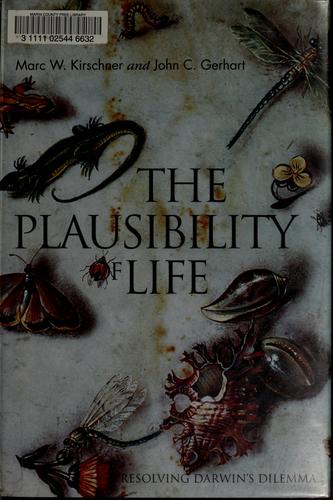Review of "The plausibility of life : resolving Darwin's dilemma" on 'Goodreads'
5 stars
A well-organized and clear explanation of the authors' theory of facilitated variation to help show how modern findings in molecular biology and development indicate likely mechanisms of evolution. Darwin describes selection acting on naturally occurring phenotypic variation in populations of organisms. Changes were thought to occur gradually and the variation was attributed to random mutation. But how, exactly, could this lead to the development of strikingly complex physiologic and anatomic structures? Darwin's best answer, remembering that he knew nothing of genetics and almost nothing of cell biology, was that we had the advantage of eons of time. This book discusses various mechanisms only made clear in the late 20th century, e.g. weak regulatory linkage, exploratory behavior, and embryo compartmentalization, that permit evolutionary changes to occur by random changes in systems that are protected from lethality and that obviate the need for simultaneous mutations in loci scattered through the genome. It's …
A well-organized and clear explanation of the authors' theory of facilitated variation to help show how modern findings in molecular biology and development indicate likely mechanisms of evolution. Darwin describes selection acting on naturally occurring phenotypic variation in populations of organisms. Changes were thought to occur gradually and the variation was attributed to random mutation. But how, exactly, could this lead to the development of strikingly complex physiologic and anatomic structures? Darwin's best answer, remembering that he knew nothing of genetics and almost nothing of cell biology, was that we had the advantage of eons of time. This book discusses various mechanisms only made clear in the late 20th century, e.g. weak regulatory linkage, exploratory behavior, and embryo compartmentalization, that permit evolutionary changes to occur by random changes in systems that are protected from lethality and that obviate the need for simultaneous mutations in loci scattered through the genome. It's a brilliant dissertation and will require the cleverer faith-based naysayers to fall back and reorganize.


